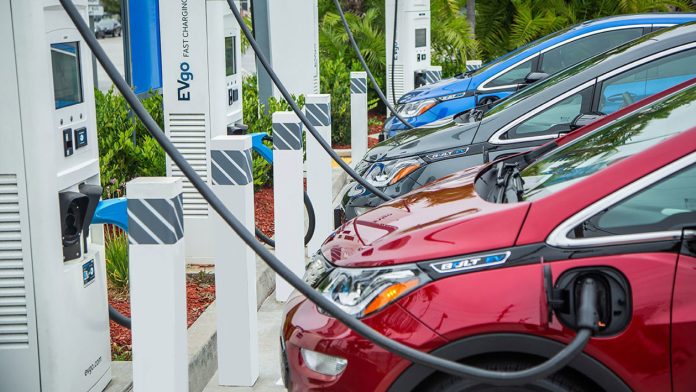Nearly half of Repsol’s (REP.MC) 1,600 Spanish charging stations are dormant as they have no power connection, Reuters reports.
Last week, the European Commission announced plans to modernise the bloc’s electricity grid, due to be implemented in 18 months, including tackling power shortages at charging stations for electric vehicles.
However, industry groups and energy companies have reported growing red tape hindering progress towards greener transport in the EU, despite claims made by its leaders.
The ease of setting up a charging hub for electric vehicles varies greatly depending on the country. One industry source reported that a hub in Germany was delayed for months due to regulations protecting a single tree, while another, located on a major highway, had to wait 10 months for a noise assessment before it received approval.
Industry group ChargeUp Europe stated that the Commission did not propose any specific tools or actions, although it acknowledged the problem of authorisation. According to the plan, concrete recommendations for member states to expedite permitting are only expected within the next two years.
The slow pace of charger deployment threatens the EU’s goals of phasing out petrol and diesel vehicles, as well as the bloc’s broader climate targets.
“The time needed for connecting the EV recharging points to the grid can indeed be seen as a barrier to accelerate the uptake of EVs and needs to be tackled.”
The process of establishing a fast EV charging station has extended to an average of two years from six months over the past few years as firms wade through multiple regulations from federal to municipal levels, according to four EV charging companies and an industry spokesperson. Lucie Mattera, secretary general of ChargeUp Europe, stated:
It’s Kafka meets the energy transition. We have so many things working against Europe but we could fix this.
Mattera claimed that the number of electric vehicles would grow faster than the total amount of public charging stations.
Electrification of transport is one of the EU’s key goals to reach carbon neutrality by 2050. To achieve this, it will ban the sale of CO2-emitting vehicles from 2035 and develop a network of charging stations for electric vehicles.
However, energy companies appeared unprepared for the surge in demand in the EU, where only 5.4 per cent of passenger vehicles currently run on alternative fuels, including electric, out of the total 286 million.
“It’s up to the member states now to really step up. There’s just an avalanche of projects.”
This year, the EU passed legislation to install fast chargers every 60 kilometres along a dedicated road network for cars and every 100 kilometres for heavy-duty vehicles by 2030. However, industry executives stated that the EU targets were set at a low level and therefore likely to be achieved, but might not meet the demand for a growing fleet of electric vehicles, especially lorries.
The industry has a strong incentive to build units for electric vehicles, but not yet for long-haul trucks and buses. These account for more than 25 per cent of greenhouse gas emissions from EU road transport, which collectively accounts for a fifth of the bloc’s emissions.
Many have individual requirements which can significantly hinder progress.
BP, which plans to roll out more than 100,000 charging stations for cars and trucks worldwide by 2030, stated that in Germany alone, it had to deal with around 800 network companies to create fast hubs for cars and lorries.
“There is a clear need for more standardisation [of requirements for charging hubs].”
Mattera from ChargeUp Europe supported the call, saying the Commission’s guidelines were likely to help EU members harmonise their actions as the number of new projects varies from region to region.
